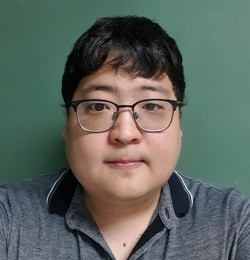At the recent ASCO (American Society of Clinical Oncology) 2024 Annual Meeting, the dedication and achievements of Korean researchers were prominently on display.

Numerous Korean researchers took the stage, presenting groundbreaking findings and serving as lead authors in various global clinical trials.
This surge in representation is a testament to Korea's rising stature in the global medical research community.
Data from the Korea National Enterprise for Clinical Trials (KoNECT) underscores this achievement.
As of May 9, KoNECT reported that Korea has climbed to an unprecedented fourth place globally for new pharmaceutical clinical trials, surpassing Australia.
Seoul, in particular, has outstripped major cities like Beijing, Miami, Shanghai, and Madrid to secure the top spot for city-based clinical trial activity.
Despite a global decline in the total number of clinical trials from 4,729 in 2022 to 4,470 in the previous year, Korea saw a 9.03 percent increase in its clinical trials.
Additionally, Korea rose to 10th place in multinational clinical trial rankings, the highest among Asian nations.
These accomplishments, which the government eagerly boasts about, supposedly demonstrate Korea's crucial role as a leader in clinical trials.
While officials celebrate the nation's high rankings and advancements, they seem oblivious to the underlying issues threatening these very accomplishments.
Notably, this triumph was not accomplished by the government alone. Korean hospital professors, regardless of their renowned status in Korea, must continuously engage with multinational pharmaceutical companies to promote their institutions and the country as a prime location for clinical trials.
This tireless advocacy has significantly increased treatment opportunities for Korean patients. Given that access to new drugs in Korea is slower compared to other developed nations, these efforts address the country's unmet medical needs.
However, recent government policies to increase medical school admission quotas and the resulting exodus of medical residents have put these efforts in peril. Oncology professors at ASCO warned that Korea’s clinical trial infrastructure, painstakingly built over years, is now at risk.
"The clinical infrastructure we've built over the years feels like it's crumbling," remarked one oncologist to Korea Biomedical Review during an interview at the ASCO Annual Meeting. "With major hospitals reducing ward operations, there is a decline in hospitalized patients participating in clinical trials.” Professors, overburdened by outpatient duties, are resigning, further complicating patient care and clinical trial management, she added.
The professor stressed that despite the collaborative nature of clinical trials, involving various medical specialties, the whole situation is being undermined by widespread staffing shortages.
Another professor added that the management of drug side effects, critical in clinical trials, is also jeopardized by the overwhelming workload of outpatient and trial duties.
“Any delay in patient care could have fatal consequences,” he said. “We fear that such problems and the fear of failing to meet the enrollment criteria for key clinical trials could lead multinational pharmaceutical companies to reduce the number and scope of trials conducted in Korea.”
Losing this hard-earned trust would be a severe blow, and regaining it would be even more challenging, he added.
Another professor criticized the absence of a plan to address such issues.
“Despite the government's promotion of Korea's clinical trial achievements, there appears to be a lack of attention to the current crisis,” the professor said. “Recent statements from the Ministry of Health and Welfare and the National Assembly do not address these issues.”
The disconnect between public perception and reality is disheartening, as these dedicated researchers have recently been criticized by the public as greedy and indifferent to patients' needs due to the recent dispute over the medical school admission quota increase.
Even amid such adversity, these professors, who walked over 30,000 steps daily at the ASCO meeting this year, continue to meet with global pharmaceutical companies, striving to bring new treatments to Korean patients.
Not only that, they were constantly receiving updates on their patients back home, and many planned to see patients immediately upon returning to Korea without having time to adjust to the time difference.
Their unwavering commitment is a stark contrast to the public's perception of them as indifferent.
The government and the public must recognize and support these efforts. The future of Korea's standing in global clinical research and access to innovative drugs depends on it.
Related articles
- Young-PEARL study’s survival data marks new milestone in premenopausal breast cancer at ASCO 2024
- [ASCO 2024] Korean researchers highlight precision medicine advances with KOSMOS-II study findings
- [ASCO 2024] New subcutaneous Rybrevant boosts US entry prospects for Leclaza
- [ASCO2024] Moderna's individualized neoantigen therapy shows broad efficacy in cancer treatment
- [ASCO2024] Lunit's AI software aims to enhance accuracy in detecting HER2 ultralow levels
- [ASCO2024] Durvalumab shines as consolidation therapy for limited-stage SCLC
- [ASCO 2024] Osimertinib emerges as an ‘one-fits-all’ treatment for all stages of unresectable EGFRm NSCLC
- [Photo News] Leading pharma giants unveil cutting-edge oncology research at ASCO 2024
- Australian CRO expands into Asia with new hub launched in Korea
- Korea slips to 6th in global clinical trials, as Beijing overtakes Seoul

